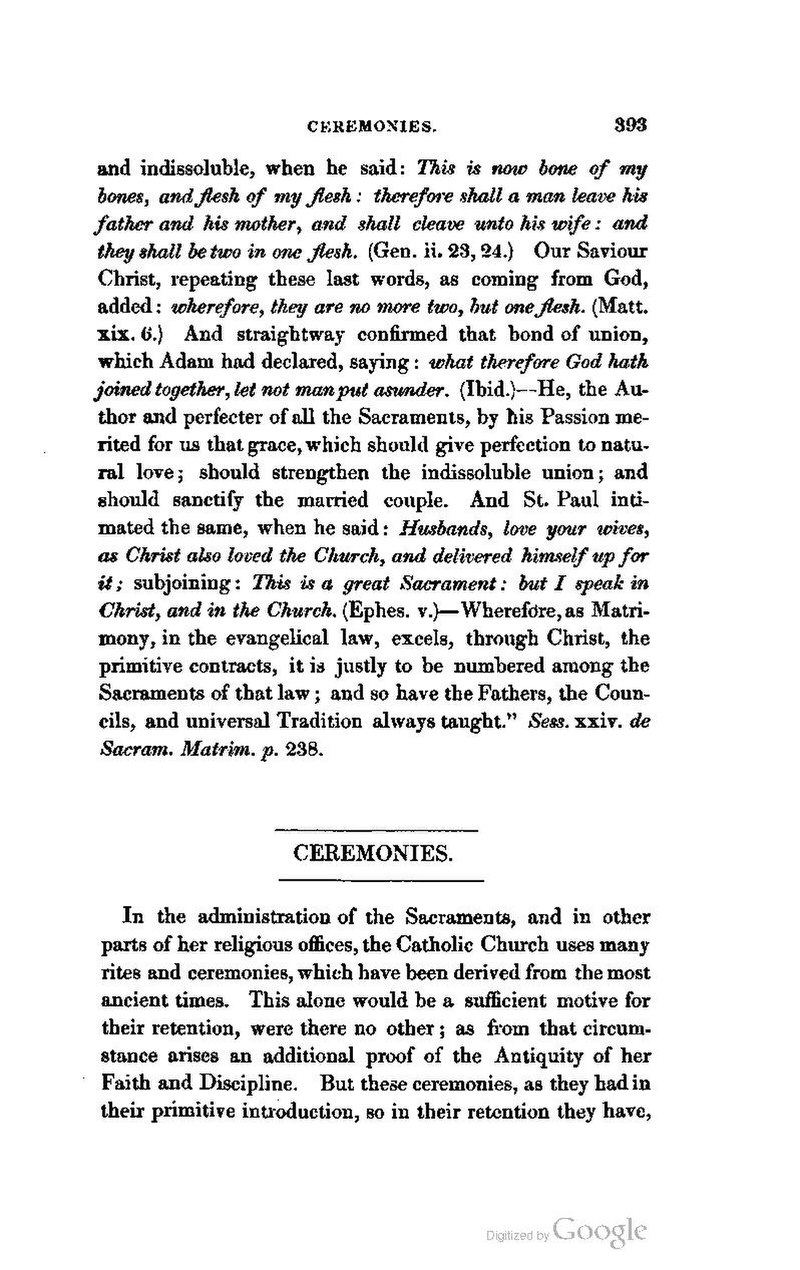and indissoluble, when he said: This is now bone of my bones, and flesh of my flesh : therefore shall a man leave his father and his mother, and shall cleave unto his wife: and they shall be two in one flesh. (Gen. ii. 23, 24.) Our Saviour Christ, repeating these last words, as coming from God, added: wherefore, they are no more two, but one flesh. (Matt. xix. 6.) And straightway confirmed that bond of union, which Adam had declared, saying: what therefore God hath joined together, let not man put asunder. (Ibid.)--He, the Author and perfecter of all the Sacraments, by his Passion merited for us that grace, which should give perfection to natural love; should strengthen the indissoluble union; and should sanctify the married couple. And St. Paul intimated the same, when he said: Husbands, love your wives, as Christ also loved the Church, and delivered himself up for it; subjoining: This is a great Sacrament: but I speak in Christ, and in the Church. (Ephes. v.)-Wherefore, as Matrimony, in the evangelical law, excels, through Christ, the primitive contracts, it is justly to be numbered among the Sacraments of that law; and so have the Fathers, the Councils, and universal Tradition always taught.” Sess. xxiv. de Sacram. Matrim. p. 238.
CEREMONIES.
In the administration of the Sacraments, and in other parts of her religious offices, the Catholic Church uses many rites and ceremonies, which have been derived from the most ancient times. This alone would be a sufficient motive for their retention, were there no other; as from that circumstance arises an additional proof of the Antiquity of her Faith and Discipline. But these ceremonies, as they had in their primitive introduction, so in their retention they have,
